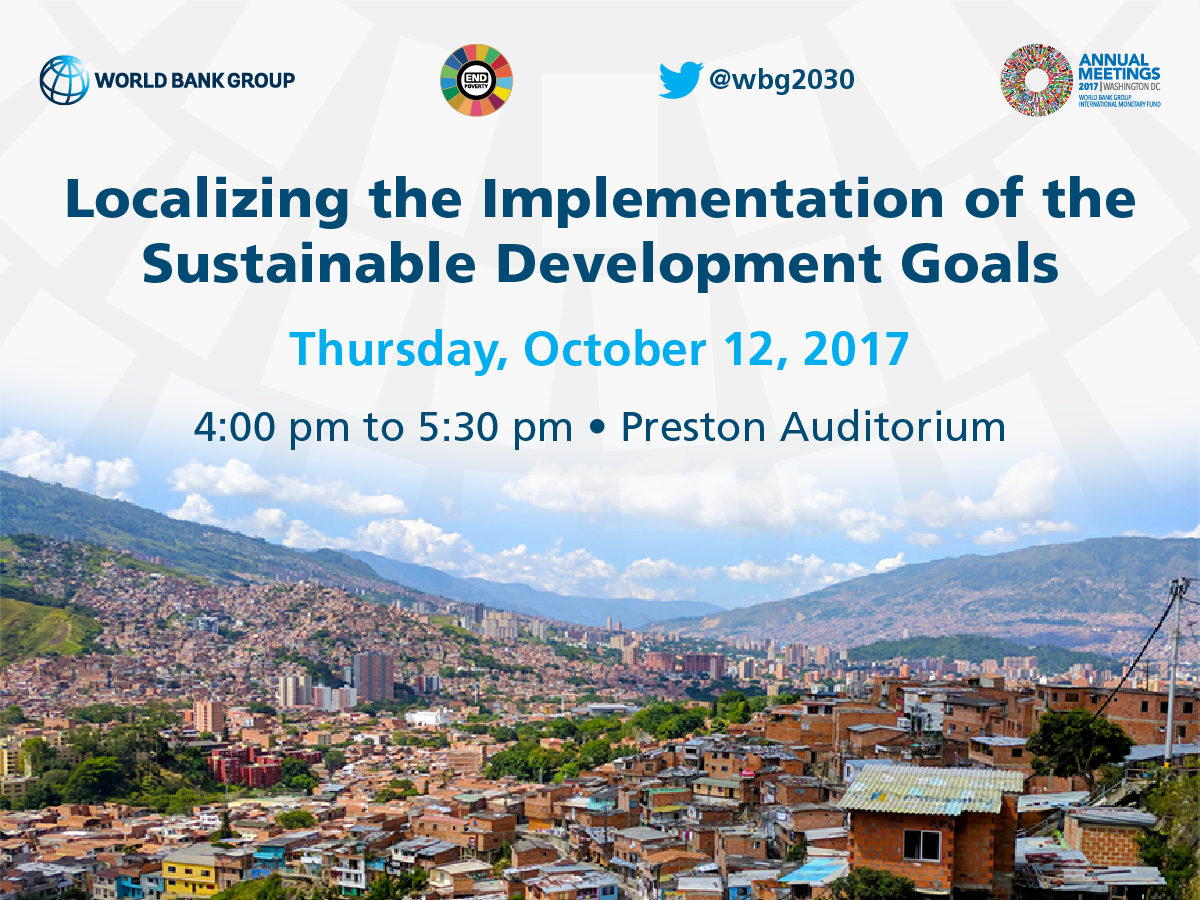We are approaching the end of year two of the Sustainable Development Goals (SDG). In September 2015, global leaders from 193 countries set a 15-year deadline – by the year 2030 – to reach the SDGs. Many leaders are now asking what we have accomplished in these first two years in areas of financing, data to measure progress, and actual evidence of implementation. In many countries, local governments deliver most of the services that actually change the lives of people (e.g., education, health care, water and sanitation, infrastructure, etc.). Therefore, it is important to look to local development partners and planning departments to see what is happening on the ground so we can assess the prospects for success in reaching the SDGs.
This 90-minute event will highlight the perspective of partners working to achieve success at the local level, including local and regional government, businesses, CSOs, and academia. The first 30 minutes will showcase Colombia’s efforts to integrate SDG targets into the National Development Plan and Peace Agreement, as well as to meet their international commitments (including the Paris Climate Agreement, OECD Accession, SDGs). The second portion (60 minutes) will highlight country perspectives from various regions around the world, along with global leaders who are deeply involved in SDG implementation efforts.
This event will highlight how countries are implementing the Sustainable Development Goals at the local level. A delegation from Colombia will discuss their efforts to integrate SDG targets into their National Development Plan and Peace Agreement, as well as to meet their international commitments (including the Paris Climate Agreement, OECD Accession, SDGs). A panel of national and global leaders will then highlight perspectives from various regions. The event will also feature World Bank Group efforts to help our client countries apply local solutions to address global challenges, including in areas related to urban, rural, social development, resilience, governance, and research and data.
BACKGROUND
One of the lessons from the Millennium Development Goals (MDGs) was that local governments often lacked the capacity to deliver results in communities, districts, and regions. Services often didn’t reach targeted populations largely because the skills and resources weren’t there where they were needed. Last year, the United Nations Development Programme and the World Bank Group released a joint report entitled “Transitioning from the MDGs to the SDGs” which revealed these shortcomings and suggested ways to move forward as we try to implement the Sustainable Development Goals. Strong engagement with local communities and stakeholders (government, businesses, aid agencies, and multilateral banks, and citizens) is required to remove bottlenecks that impede implementation, the report said. Partners must be flexible, share knowledge, focus on measurable results, and recognize that the various targets are interrelated (e.g., educating girls improves health outcomes for women and children).
Local governments must also find a way to pay for needed reforms, infrastructure, and services that lead to real changes in people’s lives. The World Bank Group’s book “Municipal Finances : A Handbook for Local Governments” notes that when responsibilities are transferred from central to local governments, it is often not accompanied with an adequate transfer of resources. Local government needs to improve its skills -- and quickly -- in areas such as expenditure control, increasing local revenue, raising external funds responsibly, achieving creditworthiness, and adopting good borrowing practices. Given the financing gaps in implementing the SDGs, much more involvement from the private sector is required, with businesses seeking “triple-bottom-line” returns on their investments (social, environmental, financial).

